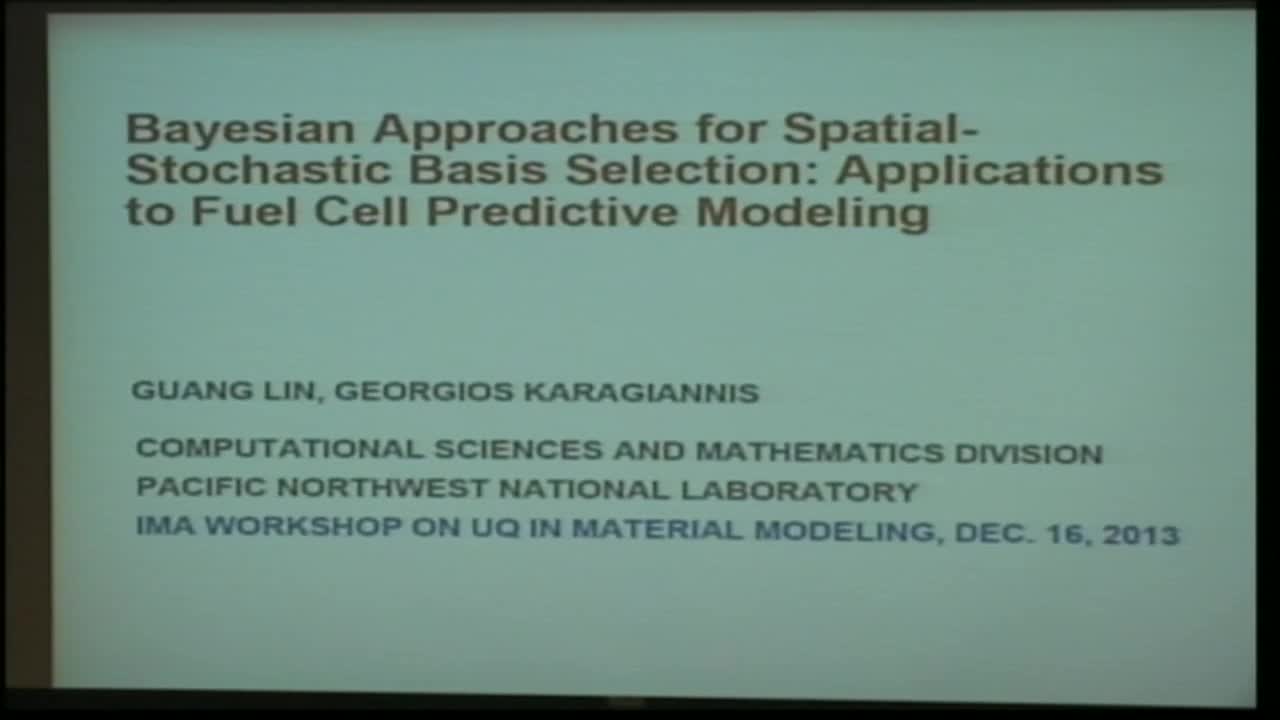Bayesian Approaches for Spatial-Stochastic Basis Selection: Applications to Fuel Cell Predictive Modeling
December 16, 2013
Keywords:
- Bayesian inference
MSC:
- 62F15
Abstract
In this talk, two fully Bayesian methods (Bayesian uncertainty method and Bayesian mixture procedure) will be introduced that can evaluate generalized Polynomial Chaos (gPC) expansions in both stochastic and spatial domains when the number of the available basis functions is significantly larger than the size of the training data-set. The method relies on modeling the PC coefficients suitably and performing simultaneously basis selection and coefficient evaluation via a fully Bayesian stochastic procedure, called mixed shrinkage prior (MSP), we have developed. MSP involves assigning a prior probability on the gPC structure and assigning conjugate priors on the expansion coefficients that can be thought of as mixtures of Ridge-LASSO shrinkage priors, in augmented form. The method offers a number of advantages over existing compressive sensing methods in gPC literature, such that it recovers possible sparse structures in both stochastic and spatial domains while the resulted expansion can be re-used directly to economically obtain results at future spatial input values. Yet, it inherits all the advantages of Bayesian model uncertainty methods, e.g. accounts for uncertainty about basis significance and provides interval estimation through posterior distributions. A unique highlight of the MSP procedure is that it can address heterogeneous sparsity in the spatial domain for different random dimensions. Furthermore, it yields a compromise between Ridge and LASSO regressions, and hence combines a weak (l2-norm) and strong (l1-norm) shrinkage, in an adaptive, data-based manner. We demonstrate the good performance of the method on elliptic stochastic partial differential equations, and proton exchange membrane fuel cell predictive modeling.
